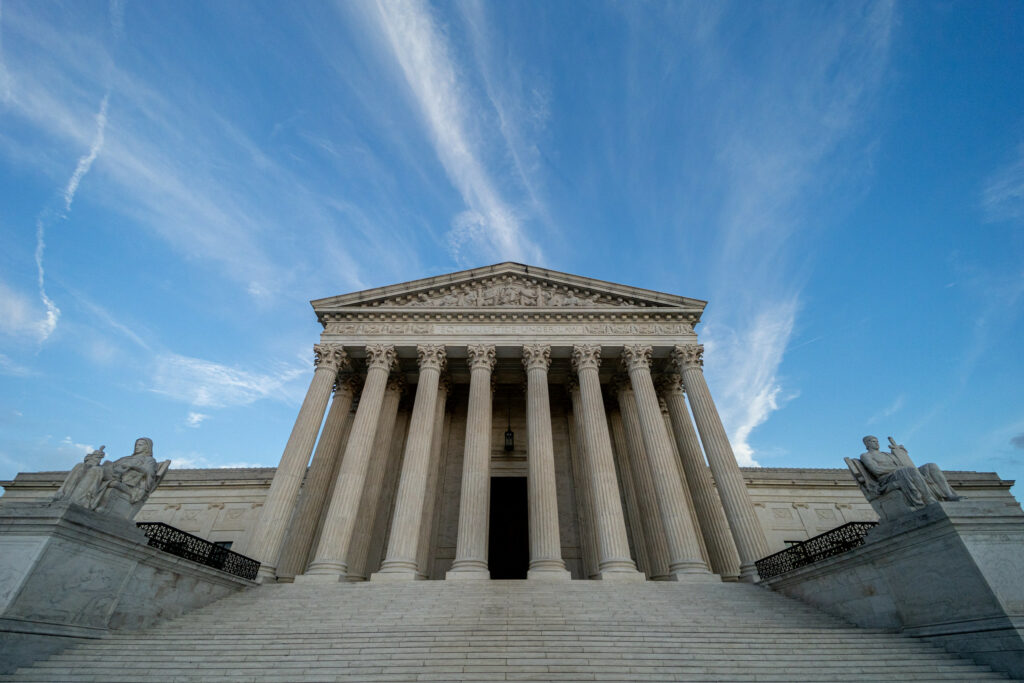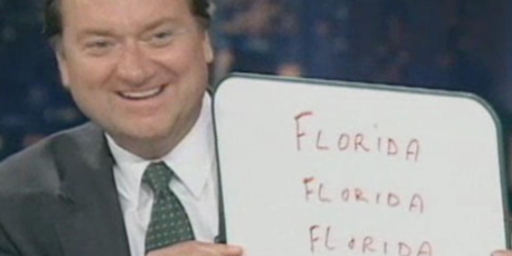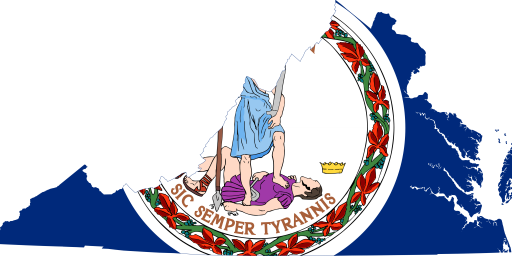Independent State Legislature Theory Loses in SCOTUS
Good news with a cautionary note.

First, the good news via the NYT, Supreme Court Rejects Theory That Would Have Transformed American Elections.
The Supreme Court on Tuesday rejected a legal theory that would have radically reshaped how federal elections are conducted by giving state legislatures largely unchecked power to set rules for federal elections and to draw congressional maps warped by partisan gerrymandering.
The vote was 6 to 3, with Chief Justice John G. Roberts Jr. writing the majority opinion. The Constitution, he said, “does not exempt state legislatures from the ordinary constraints imposed by state law.”
Justices Clarence Thomas, Samuel A. Alito Jr. and Neil M. Gorsuch dissented.
The case concerned the “independent state legislature” theory. It is based on a reading of the Constitution’s Elections Clause, which says, “The times, places and manner of holding elections for senators and representatives shall be prescribed in each state by the legislature thereof.”
Proponents of the strongest form of the theory say this means that no other organs of state government — not courts, not governors, not election administrators, not independent commissions — can alter a legislature’s actions on federal elections.
That three Justices thought otherwise is more than a tad concerning. The notion that state courts would have no ability to review state elections laws and their application is simply absurd and frightening.
The ruling soundly dismissed the theory, one that an unusually diverse array of lawyers, judges and scholars across the ideological spectrum viewed as extreme and dangerous.
So, good.
But here’s the caveat:
But election law specialists cautioned that Tuesday’s decision elevated the power of federal courts in the process, allowing them to second-guess at least some rulings of state courts based on state law.
As Chief Justice Roberts put it, “state courts do not have free rein” and are subject to oversight by federal courts in cases involving federal elections. But he said quite little about the nature and extent of that oversight.
“The questions presented in this area are complex and context-specific,” the chief justice wrote. “We hold only that state courts may not transgress the ordinary bounds of judicial review such that they arrogate to themselves the power vested in state legislatures to regulate federal elections.”
Along those lines, I recommend this piece from Slate by law professor (and elections law expert), Rich Haden, There’s a Time Bomb in Progressives’ Big Supreme Court Voting Case Win.
But Moore is not all good news. In the last part of his majority opinion for the court, the chief justice got the liberal justices to sign onto a version of judicial review that is going to give the federal courts, and especially the Supreme Court itself, the last word in election disputes. The court held that “state courts may not transgress the ordinary bounds of judicial review such that they arrogate to themselves the power vested in state legislatures to regulate federal elections.”
To understand these dense words, we need to go back to the last time the Supreme Court decided a major election case, the 2000 Bush v. Gore decision (a case cited in Moore for the first time ever in a majority opinion in the 23 years since that decision). In Bush, the Florida Supreme Court had ordered a recount of only certain ballots in Florida to determine if Democrat Al Gore or Republican George W. Bush had won the state’s electoral college votes and therefore the presidency. At the time, Bush was ahead by only hundreds of votes out of millions cast.
After the Florida court ordered the recount, Bush appealed to the U.S. Supreme Court. A majority held that the recount ordered by the Florida court violated the Equal Protection Clause because there was no guarantee that uniform standards were used or could be used to conduct it. But three justices—Chief Justice William Rehnquist, joined by Justices Antonin Scalia and Thomas—adopted this milder version of the independent state legislature theory at the time. In essence they argued that the Florida court’s interpretation of the Florida election statutes to allow this recount was so far from ordinary statutory interpretation that the Florida court was essentially making up the law for itself, and taking away the legislature’s power to decide the rules for conducting federal elections in the first instance.
It is this milder version of the independent state legislature theory that the court embraced in Moore. It did not spell out its contours, and whether to adopt the Rehnquist Bush approach or some other approach. But Justice Kavanaugh, in a concurrence, endorsed the Rehnquist approach and said that in engaging in this second guessing, federal courts need to compare election law in the state in earlier decisions. The greater the deviation, the more likely to find a violation of the independent state legislature theory.
I would recommend the whole piece.




The idea that any Justice would sign on to the Independent State Legislature theory is nuts on its face, but particularly those great “originalists,” Thomas, Alito and Gorsuch want to introduce a reading that everyone has apparently missed for the first 250 years of the Republic.
Disturbing, but unsurprising, that Thomas and Gorsuch were happy to end Democracy as we know it.
2000 showed that SCOTUS is not going to be shy if that means the wrong side will win. Moore just confirms that.
Separate from whether Thomas is correct about whether there is a live issue to be decided by SCOTUS, I just want to point out some inherent absurdity.
Thomas omits a key detail here. The reexamination by the state SC occurred after partisan elections reconstituted the ideological balance of the court.
Actually, is there a word stronger than absurdity here?
In my view, it’s absurd to think that any judge can effectively jettison their political preferences. This view includes SCOTUS, the selection process of which has insulation (permeable as it may be) to shield sitting jurists from politics. But the SC in Raleigh is directly elected in partisan elections. “Absurd” doesn’t describe this adequately given that the dissent is predicated on the notion that the state SC resolved the case by finding that it is a political question outside the purview of the judiciary.
At the very least, even if one were to make a separation of powers argument instead, it seems that ignoring the shift in the partisan composition of the state SC strips key context out of the case that would affect the question of federal jurisdiction.
@Joe:
That’s exactly what “originalism” is designed to do. They can twist the original words to mean whatever they want and use cherry picked history to justify it. They can, for instance, decide to just ignore the well regulated militia clause and make the 2A mean something different than it did for 200 years.
I think most even-handed commentators see Gore v. Bush as decision looking for a reason. The judges were going to make Bush president no matter what but the question was how to get there. The opinion is full of inherent contradictions and standards never used before but they could not even agree on exactly how to get to the desired outcome! No wonder they held the decision as nonprecedential, perhaps for the first time.
It’s funny this is being framed as a “progressive” win by that Slate headline. This is a conservative ruling. True and sane conservatives, like the hosts of this site, would appreciate this ruling.
It’s just modern Republicans have run off the rails and would in a fair world be called extremists, not conservative.
@Joe:
As a point of fact, the three dissenters would have dismissed the case as moot. They did not “sign on” to the theory in their dissent.
As I argued back in December, I think Rehnquist’s reasoning (and thus that adopted by the six Justices in the majority here) was right but that the extreme version that lost here was absurd.
I have no insight into Roberts’ thinking, but he may be historically conscious enough to recognize that the scope of judicial review per Marbury vs. Madison is not explicitly recognized in the Constitution; to give state legislatures the power to override provisions in their own constitutions is fraught with peril.